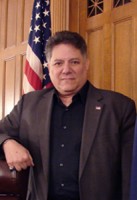Putnam Valley Crafts New Noise Ordinance Following Public Uproar

Following public outcry over the proposed decibel limit and amendments to the Putnam Valley noise ordinance, officials have scrapped the plan and are starting over to appease the community.
The decision comes after residents pressed the Town Board during a public hearing that their efforts to regulate daytime noise throughout the town would violate their rights and limit their activities. Officials have been striving to amend the ordinance after the town received numerous complaints last year of neighbors being disruptive and blasting music for hours at a time.
The existing noise ordinance doesn’t address daytime sound and fails to place a penalty on those who violate the law. The ordinance also doesn’t have a decibel limit, which has restricted law enforcement officers and deputies from effectively enforcing the code, officials have said.
A decibel is how sound is measured.
“Based upon the public hearings that we had and the comments that we’ve received, we really needed to do some major changes, and that’s what we did,” Town Supervisor Sam Oliverio said at the Feb. 3 pre-work session meeting. “It certainly pointed out a lot of things that maybe we weren’t cognizant of and the fears it brought about.”
The previous proposal, which has officially been voted down, sought to set the decibel limit at 65 between 8 a.m. to 6 p.m. within any residentially zoned district, and at 55 decibels between 6 p.m. and 8 a.m.
Commercially zoned areas would have been subject to maintaining sound up to 65 decibels.
While the proposal was in line with neighboring municipalities, such as Carmel, residents and some board members argued that 65 decibels (dBs) was too low and would restrict homeowners from engaging in common housekeeping activities, like mowing the lawn or cutting down a tree.
For comparison, normal breathing is measured at about 10 dBs, with regular conversation measured up to 65. A vacuum cleaner is categorized at an estimated 70 dBs, general traffic sounds is 80 dBs, and a lawnmower is measured between 85 and 90.
“We’re preparing a better, shortened, and more comprehensive, I think, noise ordinance, so that will be brought up again,” Oliverio said. “We already have a semblance of what we’re going to be offering.”
The new proposal states that between 7 a.m. and 8 p.m., prolonged noise levels of 70 decibels or more lasting longer than 15 minutes would be prohibited, with sound measured using a calibrated decibel meter from the property line of the complainant.
The ordinance would apply to revving cars, loud music, artificially amplified voices, or artificially amplified sound producing devices, the proposal states.
Additionally, noise levels exceeding 60 decibels for more than 15 minutes between 8 p.m. and 7 a.m. would be prohibited.
While the remainder of the noise ordinance would remain intact, daytime exemptions to the law would include ongoing construction, yard maintenance, yard and construction mechanisms and tools, air conditioners, generators, snow-blowers, hand tools, chain saws, land and or watercraft that are not stationary, and one-day celebratory events, such as birthday parties.
Furthermore, evening exemptions would consist of air conditioners, generators, all moving land vehicles, tools needed during a weather or national emergency and one-day celebratory events which must end by midnight.
The municipality and utilities would also be excused from all restrictions if it involves necessary maintenance, repairs, and any emergency response during a weather event or national emergency.
Violators would be subject to a fine of up to $500 for each offense, imprisonment of up to 15 days, or both. The town would also be authorized to seek injunctive relief to prevent the continued violation.
Oliverio said another public hearing will be scheduled once the board has completed a final draft of the latest proposal, but he indicated he wants to see something approved by March.
“We want to get this enacted before the spring,” Oliverio said. “That’s when the noise really hits its peak volume and I want this done by next month.”
